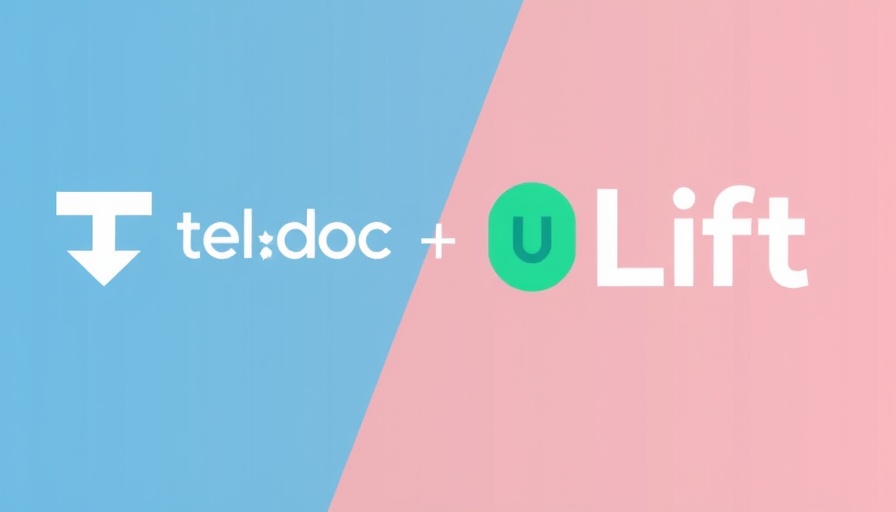
Understanding Teladoc’s Acquisition of UpLift: A Strategic Move in the Mental Health Space
In a significant step towards expanding its virtual mental health offerings, Teladoc Health has made headlines with its recent acquisition of UpLift for $30 million. This strategic purchase aims to bolster its BetterHelp network, enhancing access to coaching, therapy, and psychiatry services for employers and health plans alike.
What Is UpLift Bringing to the Table?
UpLift specializes in virtual mental health therapy, psychiatry, and medication management, boasting collaborations with health plans and providing access to over 1,500 qualified mental health professionals. This addition opens the doors for Teladoc’s BetterHelp to more easily integrate these services into employer-sponsored plans, effectively removing traditional barriers to therapy and making mental health care accessible to a wider population.
The Implications for Virtual Mental Health Services
This acquisition signifies a broader trend in the healthcare sector, particularly in mental health. The demand for accessible mental health services has soared as more individuals grapple with issues like anxiety and depression, especially in the wake of the COVID-19 pandemic. Teladoc’s approach capitalizes on this demand, allowing users to connect with licensed professionals digitally, which is not only more convenient but often preferred by younger generations.
Financial Considerations and Market Context
Despite facing challenges in the previous years, including a 10% revenue drop reported by BetterHelp, Teladoc remains optimistic. Teladoc executives underscored the necessity for innovations to address the evolving needs of mental health services. The all-cash transaction—with potential performance-based earnouts—indicates a commitment to sustained growth in the sector, which is poised for recovery in 2024 and beyond.
A Look Ahead: Virtual Care Trends and Predictions
As virtual care becomes more prevalent, we can expect the industry to evolve further. Predictions suggest that by the year 2025, the global telehealth market could reach $455 billion, driven by increasing consumer awareness and healthcare digitization. For Teladoc, integrating UpLift can not only enhance service offerings but also position them better in a competitive landscape swiftly shifting towards comprehensive digital healthcare solutions.
Counterarguments: Examining Potential Challenges
While the acquisition presents numerous advantages, it isn’t without challenges. Critics may argue that expanding services too rapidly could lead to quality control issues and service consistency—essential factors in mental health care. Moreover, Teladoc faced scrutiny earlier this year with a settlement regarding consumer health data sharing, highlighting the importance of maintaining consumer trust in their services as they continue to expand.
Key Takeaways for CEOs and Business Professionals
For those in leadership positions within the tech and marketing sectors, this acquisition serves as a case study in evaluating market needs and leveraging technology to meet them. Understanding how mental health care is increasingly neglected yet crucial can inspire innovations in other industries as well. The integration of digital health solutions is more than a trend; it’s a decisive move towards a holistic approach to wellness that should inform business strategies moving forward.
Conclusion: The Time to Pay Attention is Now
As Teladoc integrates UpLift into its suite of services, it is not just a transaction—it’s a testament to the future of mental health care. Business professionals and executives must stay informed about such developments, as they have the potential to reshape industries and consumer expectations. Embracing digital innovations is crucial to sustaining growth and fostering a healthy workplace culture, which in turn can enhance productivity and employee satisfaction.
 Add Row
Add Row  Add
Add 




 Add Row
Add Row  Add
Add 

Write A Comment